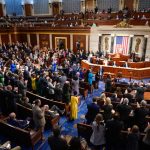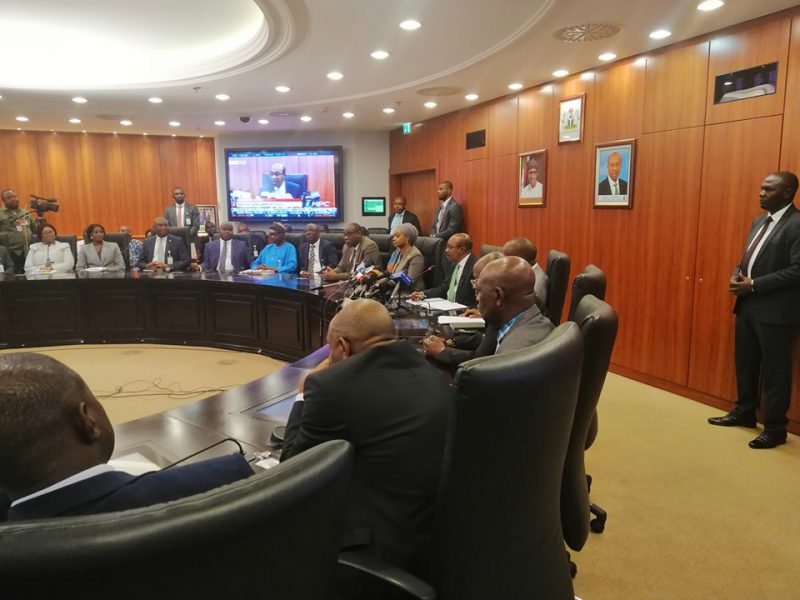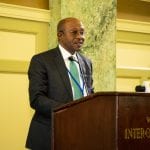- As MPC holds key rates at 13.5% as inflation persists
Nigeria’s Central bank has been authorized to develop a legal framework that will restrict lenders’ autonomous access to government equities, having found that banks have failed to provide credit to the private sector, the major driver of the nation’s economy.
Central bank governor Godwin Emefiele told reporters in Abuja, the nation’s capital that Monetary Policy Committee (MPC) has asked the regulatory bank to provide a mechanism for “limiting deposit money banks’ access to government securities so as to redirect banks’ lending focus to the private sector noting that this would spur the badly needed growth in the economy,” in the view of “the abundant opportunities that available to banks for unfettered access to government securities which tend to crowd out private sector lending.”
Emefiele said this while announcing that the Nigerian central bank on Tuesday has decided to retain its key interest rate amid rising inflation in a nine to two vote. Two who voted against the vote wanted a further 25 basis cut.
It will recalled that the regulator unexpectedly cut the monetary policy rate, a benchmark used by banks to fix their interest, by five points in March, cutting key rate to 13.5 percent to 14 per cent for the first time in three years.
After considering the necessary variable, MPC consequently decided to hold existing rates by a vote of 9 members out of 11 including MPR at 13.5 percent; Asymmetry corridor of +200 and -500 basis point around MPR; cash reserve ratio (CRR) at 2.5 percent and; liquidity ratio at 30 percent.
Emefiele said that the committee which he serves as a chairman found that rather than performing the responsibility of providing credit to the private sector “that is the engine of growth in the economy”, lenders have “been directing their liquidity to other sectors of the economy”, being the government securities.
According to the re-appointed governor, lending banks in the country have exceeded the CBN’s minimum percentage of government security instruments they are allowed to invest in order to remain liquid, and “tend to direct their focus mainly on buying government securities.”
To this end, “MPC asked CBN to think of administrative, regulatory and legal framework to be put in place to ensure that some of the credit risks associated with granting loans to the private sector that ultimately results in NPLs should be mitigated such that when banks decide to begin to lend to private sector, the probability that NPL will rise should be moderated.
“One of the inhibiting factors to growth is the fact that we have not been able to jumpstart the consumer credit and mortgage credit businesses in Nigeria. Management of the bank will think of regulations that would assist people or banks to ensure that consumer credit is improved.
According to him, MPC has frowned at that situation and has directed management of CBN to put policies and regulations in place that would restrict the banks from unlimited access to government securities. It is important and expedient that this committee gives the directive to management because this country badly needs growth.
“For us to achieve growth, those whose primary responsibility that it is to provide credit who act as intermediaries in providing credit and are catalyst to credit must be seen to perform that responsibility,” Emefiele said.
























Leave a comment